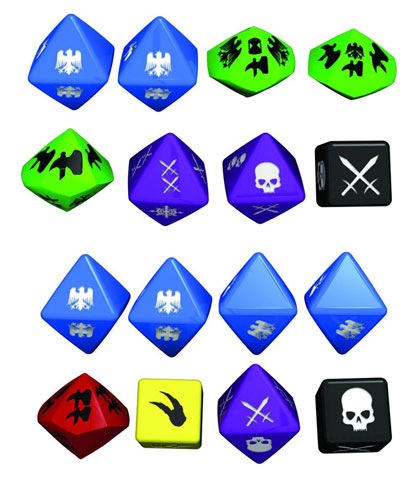My friends got really into indie games a while ago, and while most of them drove me nuts with the high emphasis on role playing. One system that I really enjoyed though, was a game called Mountain Witch. What really drew me to it was that it had an almost perfect compromise of Role play and Game which a lot of systems can't seem to get.
The setting (which could be adapted to a number of things) was basically that you and your friends were all Ronin, so for some reason or another you have already been disgraced, and you were seeking redemption (or money or whatever you wanted) by climbing to the top of Mt. Fuji to face the Mountain Witch who was terrorizing the people below.
The game had a GM who would describe a challenge for you, and then present dice that represented aspects of that challenge. As a player you had the option to talk some of those dice away if you could come up with a good enough reason for them to not matter. So for example, let's say that you come across a gap, and there is an old log that is acting as a bridge between the two sides. The GM would then declare the intent of this challenge, which is to have you fall down the gap. You say that your intent is to reach the other side unharmed. Then the GM produces dice to represent things such as 1 dice because the log is old and rotten, 1 dice because it's windy outside, and 1 because it's somewhat narrow. At this point you might be able to say that because of your years of swordplay practice, your sense of balance is enough that it being particularly narrow wouldn't bother you. It might work, it might not though.
So then you roll a d6 and the GM rolls a D6 for each aspect and selects the highest. When you roll, your other Ronin may choose to use a trust point to either aid or betray you. If they aid you, then they also roll a D6 and add their score to yours. If they decide to betray you, then they add a D6 to the GM which is rolled like an aspect dice. It's essentially harder to betray than to help, but sometimes you just need to.
Now this is the part that I really like though. You don't roll just to see if you do something or not, you're rolling to win narration rights to this segment of the story. So if I win the roll by X I get a major victory, which means that not only can I narrate me getting what I want, but I can add a little bonus or something. If I roll a victory, but only by a little than I might get a minor victory or a mixed victory. This means that I either only reach my objective and nothing more, or I reach my objective but at a cost. This might take the form of a wound which subtracts from my next rolls or something else. If we roll a tie (I think, don't remember exactly) then either of us narrates a situation where we kind of end up in a tie. This might mean, for the log scenario above, that the log breaks while I'm on it, and I fall a bit but I land on an edge just shy of the top of the ridge meaning I have to do a new roll to see if I can climb up from here.
Another great aspect of the game is that you can spend a trust point to steal narration right from whoever won it. One of the coolest ways this ever happened in a game we played was when one of us talked to some demon birds and convinced them to not sound the alarm to our presence. At this point someone else stole the narration and said that the same thing happened, only the guy who did all the talking did so in a demon language that none of us understood. So all that our CHARACTERS knew is that our so called friend talked in an ancient demonic language and commanded several demon crows to fly away. We don't know what he said to them or what they flew away to do.
Anyway, there's more to it than that of course but it was just one of the best systems I ever played. It was so much fun!


